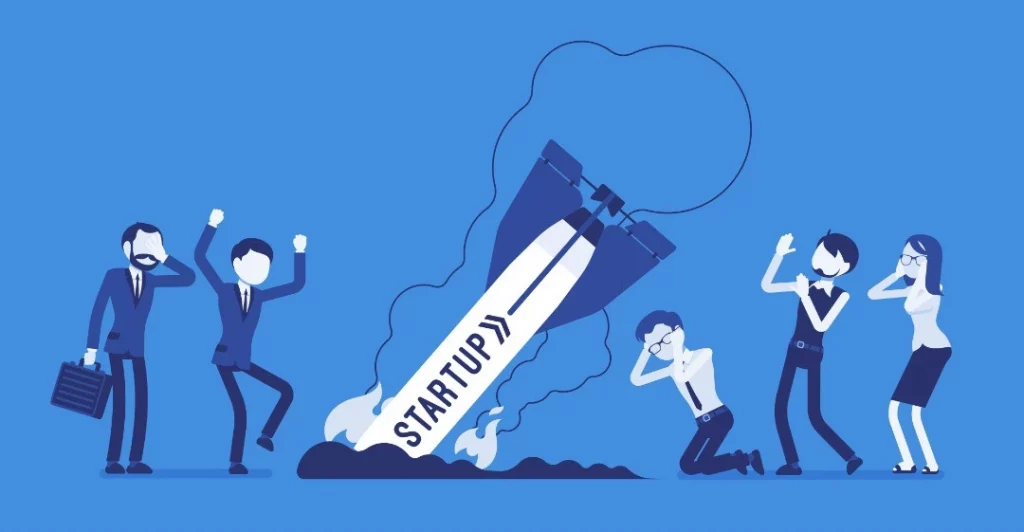

It became one of the most expensive failed startups in India because it failed to meet its targets. Tazzo, a bicycle rental start-up, raised a considerable amount of money, but it was closed down for lack of a profitable business model. The reason given by one of the financing partners was a failed product / market adjustment that led to the funding drying up.
Whether it was the overwhelming response to his business model or something else, Tazzo joined the list of major startup failures for unknown reasons. If a start-up maintains and stabilizes its own business model and secures venture capital for growth risks, it can be seen to have caught up with technology and stock market valuations, ignoring customers.
If your e-commerce site has negative reviews instead of positive reviews, the business will fall apart and the e-commerce start-up will fail. This is another reason why you should offer better services to reduce the likelihood of your e-commerce start-up failing.
A large number of start-ups fail for the simple reason that consumers need their products. One of the biggest mistakes startups ultimately make is to focus on the solution rather than the business and revenue model. If they compromise on customer service and the quality of their product, this will lead to the closure of the shop.
A common reason for many start-up failures is mismanagement, negative cash flow, and unscalable operations. Poor financing is another reason for closing startups that are underfunded in areas such as e-commerce, fintech, food tech, and consumer services.
According to a recent study on entrepreneurship in India by the IBM Institute for Business Value and Oxford Economics, other reasons include a lack of skilled labor, underfunding, inadequate formal care and poor business ethics. A study conducted by IBM found that 91% of companies fail within the first five years and the most common reason for failure was a lack of innovation. Among these reasons, 77% of venture capitalists surveyed believed that Indian startups lack new technologies and unique business models.
According to the survey, 77% of venture capitalists believe that Indian startups lack innovation and unique business models. Although the market value of Indian startups has risen in the last four years, a recent study of entrepreneurship in India by the IBM Institute for Business Value and Oxford Economics found that 90% of them fail within the first five years.
CB Insights lists 20 reasons why startups fail, with disharmony between the start-up team and investors being the tenth most common reason startups fail. Here are a few reasons why e-commerce is seen as one of the main reasons for the failure of start-ups, and is seen by many, including top investors, angels, VCs, and successful entrepreneurs, as one of the main reasons for the country's high start-up failure rate. New business niches are unique, but they also often contribute to the failure of e-commerce.
When you talk about the growth of an e-commerce business, you have to talk about failures. I will share the causes and actors behind the failure of e-commerce startups and believe that it will help others learn and avoid repeating the same mistakes.
Now that you know how to start an online business, you should understand the reasons for the failure of a new e-commerce start-up. We have identified the main reasons for the failure and opportunities for entrepreneurs to challenge the failures of start-ups. Here is a deeper analysis of the main reasons why e-commerce companies fail and solutions to the most common errors that lead to failure.
E-commerce startups fail because they have not planned their start-up costs correctly and lack of investment is one of the main reasons e-commerce startups are falling apart. For starters, most start-up entrepreneurs think they are entering the e-commerce business. They do not attach much importance to their website and do not want to waste the startup, believing they have the money to build an exclusive website.
A number of entrepreneurs ignore the fact that attracting and retaining customers comes at a high cost, and startups need a foolproof business model to maintain their profits. Many of the startups and e-commerce shops sell the same products that are already available from the e-commerce giants, and they add their new flavor with a higher price tag.
I think if you understand why e-commerce startups fail, you can convince many customers to buy your product just by looking at the photos. A bad-looking photo can shock your customers and become one of the reasons why an e-commerce start-up fails. Often rude behavior and inappropriate responses can ruin the company's name and become another reason why e-commerce startups fail.
With the benefits of the availability of a variety of brand options for the same products at lower prices, the convenience of shopping from home and the means of online presence, e-commerce companies and start-ups take advantage of the opportunity to become aware of the simple and convenient online purchase of goods and services.
One of the main reasons why e-commerce companies fail is that they do not appear on the first page of search results. The two main reasons are the persistent negative cash flow and the lack of scalability leading to a single major false start. The entry of well-financed start-ups such as Grofers and Big Basket is another reason why MrNeeds has failed.

8 important tips on finding a consultant for your startup
The business world is changing with the speed of light. While consultants are a viable option in large companies, there is a growing amount of...




